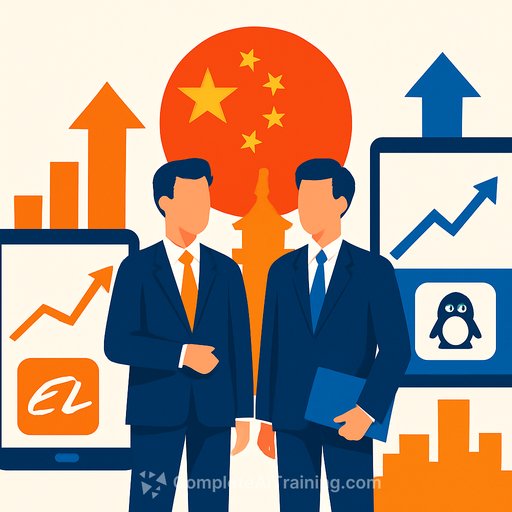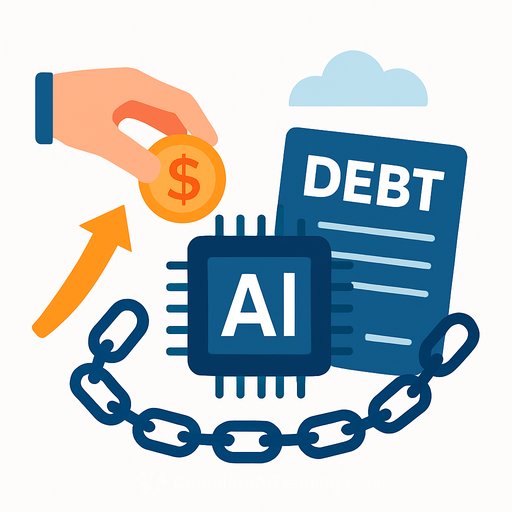UBS Puts a Clear Stamp on China's AI Leaders: Alibaba and Tencent
UBS has narrowed its China AI exposure to two names after a year of real monetization: Alibaba and Tencent. The bank's view is simple-back companies converting AI into revenue now, with execution to match. Analysts argue the sector still doesn't fully reflect its growth path.
Why these two
Alibaba is described as China's largest AI enabler, with full-stack cloud infrastructure that supports training, inference, and deployment at scale. Tencent stands to gain from AI upgrades in gaming and advertising, with extra upside from AI agents integrated across its ecosystem.
Momentum backs the thesis. Following strong Q2 prints in late August, Alibaba's U.S.-listed shares are up 83% year to date through Friday. Tencent's Hong Kong-listed shares are up more than 54%, outpacing Baidu (+36% in the U.S.), JD.com (-3% in the U.S.), and Meituan (-36% in Hong Kong) over the same period.
AI monetization is showing up in the numbers
UBS notes clear AI-driven lift across China internet names, visible in both reported results and management outlooks-especially in ads and gaming. The takeaway: user engagement and advertiser ROI are improving as AI is embedded into recommendation systems, content tools, and operations.
Chips: constraints are manageable
While the timeline for Nvidia's U.S.-compliant H20 shipments to China remains unclear, major platforms report adequate chip inventory for training. They're also squeezing more from existing hardware via software gains and have multiple options for inference chips, reducing reliance on imports.
UBS highlights domestic progress in large language models and local silicon as key supports for continued rollout. For context on LLMs, see an overview of large language models here.
Capex is scaling with confidence
Both companies are investing to secure future AI growth. In Q2, Alibaba accelerated AI-related capex by more than 50% versus its prior four-quarter average. Tencent more than doubled capex year over year to 19.1 billion yuan in Q2 and signaled further spending in 2025.
What could go wrong
- Alibaba's heavy subsidies in instant delivery as it battles JD.com and Meituan could weigh on margins.
- Tencent still faces policy uncertainty in gaming, even after prior easing.
- Expectations have risen-execution and ROI on AI spend must keep pace.
What to track next
- Ad yield lift from AI targeting and creative tools.
- Cloud AI attach rates at Alibaba (training and inference services).
- AI agent launches and engagement inside Tencent's apps and games.
- Capex intensity versus realized monetization.
- Chip availability and model performance benchmarks.
- Regulatory updates on gaming and data.
Bottom line: UBS is concentrating on leaders turning AI into revenue today, with infrastructure and ecosystems built to scale. If capex converts to higher-throughput ad platforms, smarter games, and stickier cloud services, the upside case strengthens.
If you're mapping AI's impact on finance workflows, explore a curated list of AI tools for finance here.
Your membership also unlocks:






